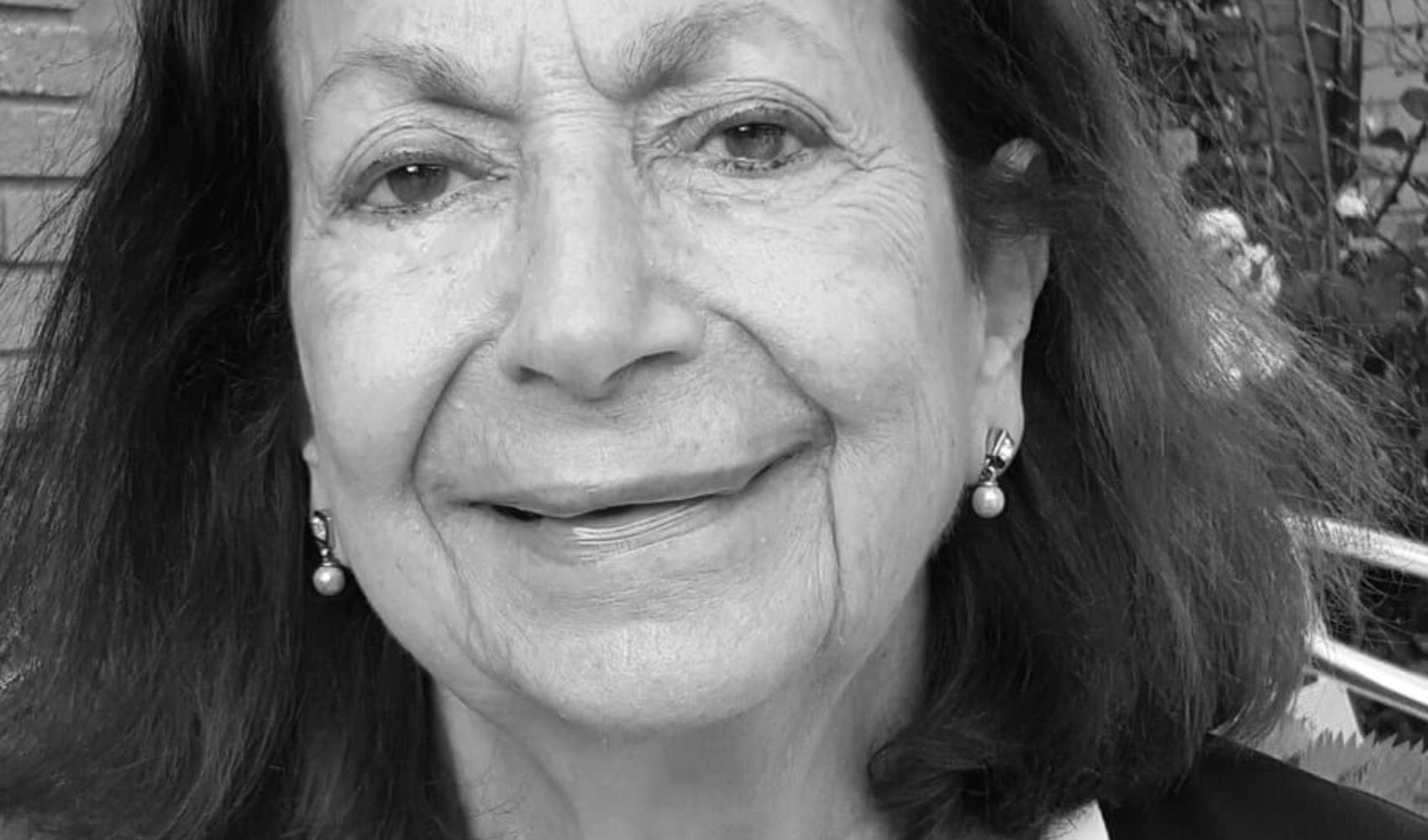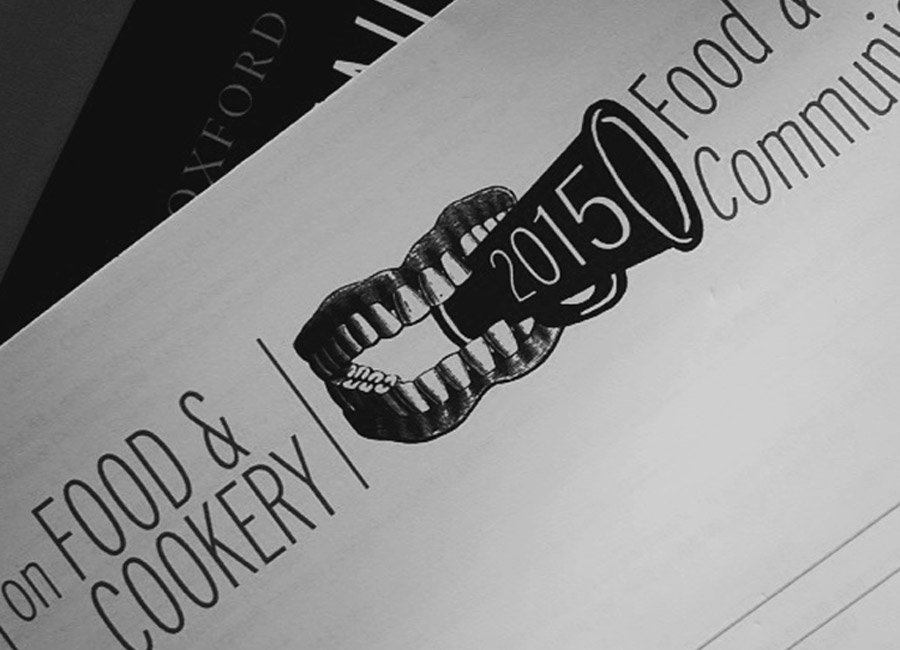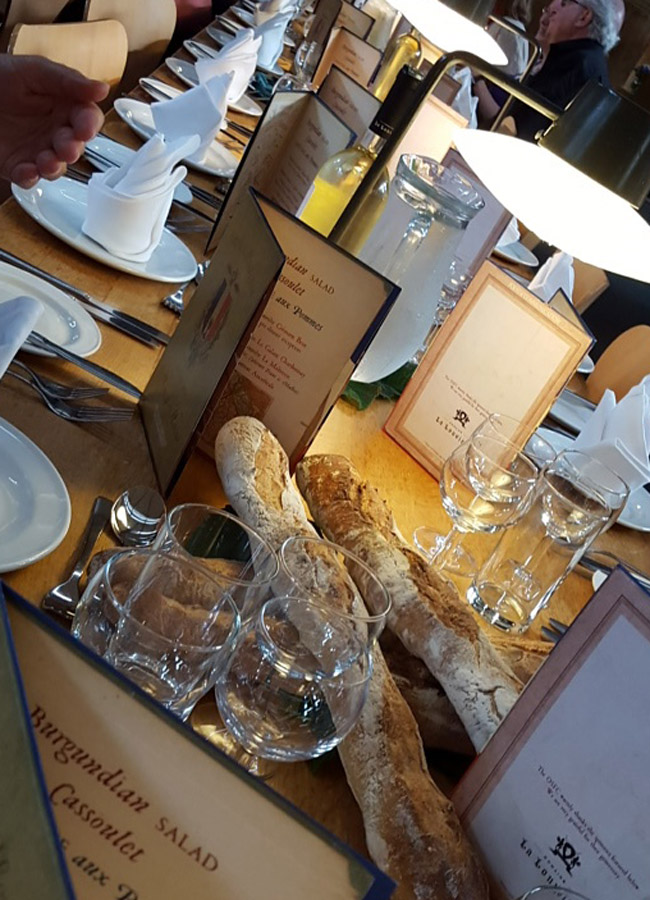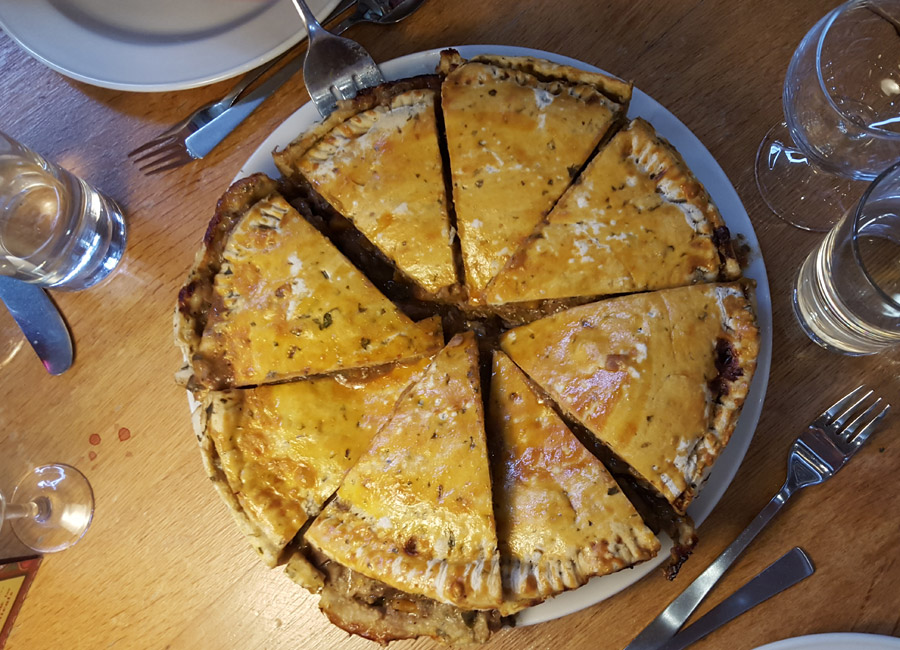
Wie einige von Euch vielleicht wissen, war ich Ende Juni zum ersten Mal beim Oxford Symposium on Food and Cookery. Von Freitag bis Sonntag treffen sich dort jedes Jahr Wissenschaftler, Kochbuchautoren, Foodprofis, Studenten, Journalisten und interessierte Laien, um über ihre große Leidenschaft zu sprechen: die Kulinarik. Es war ein fantastisches Wochenende mit gleichgesinnten Food-Enthusiasten. Weder Alter noch Herkunft noch Status spielten eine Rolle, sondern allein die gemeinsame Leidenschaft für die Esskultur. Als ich im College St Catherine’s ankam, kannte ich keine Menschenseele. Als ich abfuhr, hatte ich ein dickes Bündel von Visitenkarten in der Tasche, viele interessante Kontakte geknüpft, fantastisch gegessen, und großartige Anregungen bekommen, um über Essen und Esskultur neu nachzudenken. Und ich habe ein Interview mit Claudia Roden mitgebracht, der Präsidentin des Symposiums. Roden ist eine der ganz großen Kochbuch-Autorinnen, ihre Bücher sind allesamt Klassiker. Besonders The Book of Jewish Food ist aus keinem Kochbuchregal wegzudenken. Mit ihr habe ich über das Symposium gesprochen, über ihre Arbeit und über neue Trends in der Esskultur.
Interview mit Claudia Roden
ETH: Mrs. Roden, as President of the Oxford Symposium on Food and Cookery, what would you say makes this event unique?
Claudia Roden: I think the nature of the event was defined very early on when people who came were mainly amateurs. They were really passionate about food and everything to do with food. Since some years we have attracted academics from many different fields who have discovered that food has a lot to say to them. About the past, about authority, about who we are. We are very happy to have some very distinguished scholars who deliver papers but we also want to keep the Symposium open to people who are not academics, who are not trained in a special research method but who know how to go out and do research. We also have cooks, food writers and knowledgeable people who work in the food industry. We want to attract both groups as they have much to offer each other.
EHT: Your career as cookbook author has been long and very successful. Extensive travels, research into the culinary history of various
countries, and love for detail distinguish you from others in your field. One might even go so far as to say you are a „food scholar“.
Claudia Roden: I do not call myself a scholar because I have no academic qualifications. I went to art school. Although I am very serious and rigorous in my research and what I write, I do not follow the research methods nor do I use the language of academic anthropology and ethnography. The plus to this lack is that I feel free to follow what fascinates me and to mix history, sociology, ethnography and personal anecdote to explain the dishes and cuisines.
Love for the Mediterranean
ETH: You have covered a variety of cuisines and countries in your work, mainly the those in the Mediterranean; Spain, Italy, the Middle East. Is there a reason for this?
Claudia Roden: I was born in Alexandria. As a child I went on holiday with my parents to France and Italy and I went to school in Paris. I speak French, Italian and Spanish and feel happy and at home in Mediterranean countries. They are all very different but they also have a lot in common – similar dishes, a way of being and a special spirit and culture to which I feel I belong.
ETH: Your Book of Jewish Food is seen to be the most comprehensive on its subject. You not only collected recipes from all over the world but also tell about traditions and Jewish culinary culture. If you wrote this book today, would its content differ in any way? In other words – has the Jewish cuisine undergone any major developments since the late 90ies?
Claudia Roden: I have discovered dishes, cuisines and stories of communities that I had left out. When I started collecting and researching many communities had only just left their old homelands and people were still cooking in ways that were handed down in the family. New generations belong to a world that values innovation and invention and are happy to do a new “take” or “twist” on traditional dishes.
ETH: In which country is the center of this renewal?
Claudia Roden: I have recently been to Israel (I received a life achievement award) and had many fantastic dinners hosted by innovative chefs. I was enthralled. Chefs who do innovative Middle Eastern or Jewish style cooking all tell me that they use my book as their primary source. It makes me happy that I have stuck to “tradition” and had something lasting to offer.
ETH: You have traveled extensively. What is your experience in recreating food that comes from countries far away?
Claudia Roden: I try to approximate remembered tastes which sometimes needs an addition: a teaspoon of sugar with tomatoes or more spices when their flavours are weak. I also try to simplify methods and often lighten a dish by roasting or grilling for instance instead of frying. The way we like to cook and eat has changed over the years where I live and also on the other side of the world. I try to keep in touch with how things are done in the country of origin today.
Food without Boundaries
ETH: With globalization and the mobility of cultures, food boundaries have fallen. People in the industrialized countries have access to any ingredient and cooking style. How do you believe this will shape the art of cookery in the future?
Claudia Roden: At one time the well-to-do of the world followed French classic cuisine then Italian rustic cooking replaced it in their affections. Foods went in and out of fashion. At first fashions started in America even if the items were plucked from Europe, for example balsamic vinegar or sun-dried tomatoes, but now trends start in different parts of the world – in Spain, Denmark, Peru, etc. Lately it is “healthy” food with a list of superfoods that is fashionable as well as the “local, seasonal and sustainable”. The way of eating tapas, mezze, crostini and “dishes to share” is popular. I am not sure what the next trend will be.
ETH: Is food a means to understand people from cultures other than our own?
Claudia Roden: Food does help to understand other cultures and in a convivial situation to bond with people from other cultures.
ETH: What are your latest projects?
Claudia Roden: At the moment I am revisiting and rediscovering the Mediterranean anew.
ETH: Last question – in your opinion what makes a good cookbook?
Claudia Roden: Good recipes to make wonderful dishes, an insight into the background of a cuisine, and a personal voice.
Mrs. Roden, thank you very much for this interview!
Englische Editionen von Claudia Roden
1968: A Book of Middle Eastern Food
1970: A New Book of Middle Eastern Food
1981: Picnic: The Complete Guide to Outdoor Food
1981: Coffee
1987: Mediterranean Cookery
1990: The Food of Italy
1992: Claudia Roden’s Invitation to Mediterranean Cooking: 150 Vegetarian and Seafood Recipes
1997: The Book of Jewish Food: An Odyssey from Samarkand and Vilna to the Present Day
1999: Coffee: A Connoisseur’s Companion
1999: Tamarind and Saffron: Favourite Recipes from the Middle East
2000: The New Book of Middle Eastern Food
2001: Picnics: And Other Outdoor Feasts
2003: Claudia Roden’s Foolproof Mediterranean Cooking
2003: Foreword to Traditional Moroccan Cooking by Madame Guinaudeau
2004: The Arab-Israeli Cookbook: The Recipes, met Robin Soans
2005: Arabesque – Sumptuous Food from Morocco, Turkey and Lebanon
2006: Arabesque: A Taste of Morocco, Turkey, and Lebanon
2007: Simple Mediterranean Cookery
2011: The Food of Spain
Deutsche Editionen von Claudia Roden
1987: Hot – Pots. Heiße Tips für unterwegs
1987: Die Lust, im Freien zu speisen. Picknickrezepte aus aller Welt
1997: Die Küche des vorderen Orients
2001: Arabische Küche, Mittelmeerküche. Gemüse, Fisch, Süßspeisen
2007: Arabesque: 180 orientalische Rezepte
2010: Die orientalische Küche. 180 Rezepte von Claudia Roden
2012: Spanien. Das Kochbuch
2012: Das Buch der jüdischen Küche: Eine Odyssee von Samarkand nach New York






Schreibe einen Kommentar